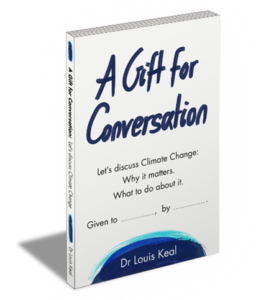Support
If you’re looking for:
If you’re looking for ways to educate yourself about the latest research – go here
Contact us!
We host regular group zoom gatherings – join our Facebook Group to find out future dates – or click to the Upcoming Events tab.
You may also wish to schedule a completely free one-to-one conversation with us.
Waking Up – a podcast
Kimberley was a guest on the Inner Compass podcast in September 2023.
Listen here: Podcast 57 The Climate Crisis – What is Mine to Do? – Inner Compass (innercompassguide.com)
If you’re waking up to the climate crisis, the disintegration of the natural world and the fragility of our planet… then you probably feel a sense of urgency, insecurity and helplessness.
In this interview with Kimberley Hare we head towards a heart-based exploration and explore ‘What is mine to do?’ rather than ‘what is going wrong?’
Join our Wednesday Witness Club
Every other Wednesday, HEART Community Group hosts a 90 minute zoom call – see more on the Upcoming Events page.
Climate Cafes
Climate Cafes are becoming more popular, and there are several in Hertfordshire. Here are two we’re familiar with… do let us know of any more, and we’ll add them here.
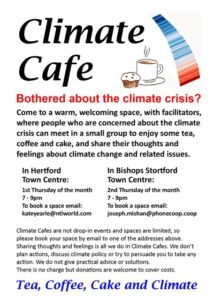 |
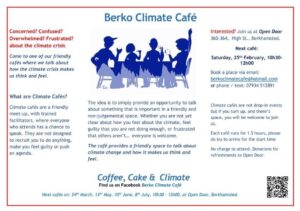 |
Tips for Talking About It
(Created by participants on “The Edge” Retreat)
- Check in with yourself – what’s your state of mind? Don’t have the conversation unless and until you are peaceful, calm, clear and coming from Love. What’s the story you’re telling yourself about them? These conversations work best when you are loving, open, gentle, kind and curious.
- Have permission. Find common ground, and find out what they already care about. Only when they’re curious, and when you’re curious about their experience. (Everything is potentially connected with this)
- Speak from ‘I’ – tell your own story. Don’t try to prove things or cite facts. Share your feelings.
- Ask questions and listen empathically. Scrap the script. Commit to relationship vs “being right”
- Let go of outcome – whatever the outcome, it’s OK. It’s OK to not have all the answers.
- Offer a vision. Be the change that you want to see.
- Don’t waste energy – some conversations need leaving.
- Drip-feed is OK, and may even be preferable.
- Talk about ‘normal, every-day stuff’ sometimes!
- No preaching, finger-wagging or being patronising. Listen more than you talk. Be compassionate. No judgement.
- The feeling-tone of the conversation is often more important than the words you say
Written by Dr Louis Keal, this is a terrific book to ‘gift’ to others in your life to kickstart a conversation.
Are there members of your family, friends and colleagues who don’t “get it”?
This ‘gift book’ can help.
A Gift For Conversation: Let’s Discuss Climate Change is an interactive gift book, designed to get people talking about Climate Change.
It explains Climate Change in simple, clear and emotive ways, complete with beautiful illustrations.
There are sections YOU write! Use the power of your own story – your most persuasive tool.
“If they just knew the facts, surely they’d get it, right?” (Nope)
- It’s the social and cultural aspects of humanity where the barriers to change lie. There is lots of research going on into this.
- No correlation between intelligence or scientific literacy. Big correlation to political affiliation – the more ‘conservative’ the more people deny implications of the science. And also religious affiliations (particularly in the USA)
- The most dangerous myth is that climate change is a long way into the future, and in places far away, and won’t affect me or those I love.
- The most effective messengers are NUMBER ONE friends and family, followed by climate scientists
- When talking with people – don’t necessarily start with the science
- Start by connecting over things you both care about – and if you don’t know, find out. Are they a parent, what are their passions, what’s relevant in their geographical location, e.g. flooding, temperature, soaring insurance rates?
- Only then, connect the dots with how climate change affects us and those things we already care about.
- People are more impacted by what’s already happened, and is happening now – rather than what’s coming our way.
- The biggest thing that gives us hope is when we ACT, and we see other people acting.
- Give up the idea that you’re in control of the outcome. Create boundaries and ‘days off’ – you’re only human
Source: Webinar with Professor Katherine Hayhoe, Climate Scientist, March 2020
British Public Perceptions of Climate Risk, Adaptation options and Resilience (Climate Outreach and Cardiff University)
https://climateoutreach.org/resources/engaging-public-on-climate-risks-and-adaptation/
Seven Recommendations
- Climate change concern is at an all-time high, and adaptation policies are supported across the political spectrum – these are important starting points for public engagement
- Climate impacts are increasingly salient, with a surge in concern around extreme heat – this opens up a new front for engaging the public
- Climate change is getting ‘closer to home’ – show how climate risks are relevant to people’s lives by relating them to widely-shared values, and build efficacy by making the link to constructive solutions
- Framing messages – concerns about mitigation and adaptation reinforce each other and are perceived as two sides of the same coin
- Health risks, wellbeing and adaptation – make the connection and frame messages in this way, but don’t assume much existing knowledge
- Climate conversations need to go beyond discussions of emissions targets – a ‘just transition’ applies to adaptation as well
- From concern to commitment – deepening public engagement on climate change is the challenge ahead
What’s Mine to Do?
When we wake up to the meta-crisis unfolding around us, the question people often struggle with is “What is mine to do?”
How can I best be of service to the world, and what is my unique thread to pick up?
In this interview with David Baum, Kimberley Hare offers SEVEN PATHWAYS.
Collapse Club Interview January 2023
And here’s a blog that goes into a little more detail about the seven pathways:
Finding your Thread: Towards answering the Question “What is Mine to Do?” | HEART Community Group
“Do not try and save the world, or do anything grandiose.
Instead, create a clearing in the dense forest of your life – and wait there patiently.
Until the song that is your life drops into your cupped hands, and you recognise and greet it.
Only then will you know how to give yourself to this world so worthy of rescue”
Martha Postlethwaite
Emotional Resilience in Turbulent Times
led by Chantal Burns
We offer regular free in person workshops on Emotional Resilience in St. Albans.
Emotional Freedom and Resilience, no matter what.
If you relate to any of the following, then this session is for you :-
- You’ve been feeling frazzled, overwhelmed or close to burn out and need to mentally reset.
- You’ve been struggling with your feelings about issues close to home, and you welcome a safe space to explore and navigate this.
- You have children (or people) in your life who are struggling with their own thoughts and feelings.. You want to be able to support them with love and understanding, without it adversely affecting your own mental health.
- You’re balancing the responsibility of work, children or elderly parents while at the same time coming to terms with the climate emergency and what it might mean. It all feels a bit overwhelming. You want some peace of mind or clarity.
Whatever is going on for you right now, this will be a safe space to slow down and reset.
Join us, clear your mind and re-discover the deep peace, wellbeing and innate resilience you were born with.
If you have any questions, please send them to heartcommunitygroup@gmail.com and use subject line : Emotional Resilience
We look forward to welcoming you!
ABOUT YOUR GUIDE:
Chantal Burns is an experienced psychological coach and teacher with 20+ years of experience, specialising in emotional resilience and mental clarity. She shows people how we can live with a free mind and open heart, unconditionally.
She’s also a bestselling author. Get a free chapter from her book via this link (www.chantalburns.com/book)
Check out our Upcoming Events page
for dates and details.
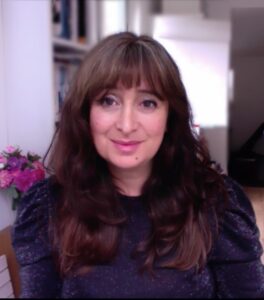
The Edge Retreat
See Upcoming Events for retreat dates upcoming dates
Hunton Park Hotel, Hertfordshire
“The Edge” – a 4-day retreat (free to all) designed to help you connect with your resilience, courage and well-being. To stand tall in the face of our predicament, whilst honouring your grief and other emotions, and to discover what might be your ‘thread’ to pick up.
https://www.heartofthriving.com/event/the-edge-2/

Are you somebody who has woken up to the climate and ecological crisis?
This is a 4-day retreat for people who wish to inquire, in good company, into the question “So, what now?”
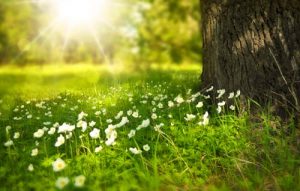
“The retreat was beautiful, I went on such an incredible journey, and 4 days really gave me the space to drop into it. I feel like I now have the courage to follow my path with clarity, without the unnecessary attachment to fear, self-doubt and the overall outcome to the climate and ecological crisis. Kim is the most incredible teacher and I feel profoundly thankful to have had this opportunity. Thank you.” Rowan Henthorne.
“I came with an open mind and high expectations. What I was seeking was not exactly clear – I just knew that this was a moment. What I found was one of the most profound experiences of my life. Love manifest – fears faced – clarity found – direction clear.” Myles Daly
Support for Eco-Anxiety
Eco-anxiety is normal and more frequent than people think
Eco-anxiety may take different forms – a general worry or acute anxiety. Some people experience difficulty sleeping, panic attacks, or an inability to focus on other important things like their relationships or (school)work.
If you experience any of these symptoms, you are not alone.
Helpful resources
Here’s a list of resources that we and other people we know have found helpful. Feel free to check them out.
BOOKS AND AUDIOBOOKS
Turn the Tide on Climate Anxiety: Sustainable Action for Your Mental Health and the Planet
Written by psychologists with extensive experience in treating people with eco-anxiety, this book shows you how to harness these emotions, validate them, and transform them into positive action.
VIDEOS
How climate change affects your mental health
“In this quick talk, science writer, Britt Wray, explores how climate change is threatening our well-being — mental, social and spiritual — and offers a starting point for what we can do about it.
How to turn climate anxiety into action
“In an affirming talk, psychologist Renee Lertzman discusses the emotional effects of climate change and offers insights on how psychology can help us discover both the creativity and resilience needed to act on environmental issues. She talks about turning that paradox into something productive.”
ARTICLES
Climate anxiety is real. Why talking about it matters
In this article, international researchers identify different symptoms of climate anxiety. As a result of their findings, they outline why it is important to talk about it and the best ways to cope with it.
Climate Change Taking a Toll on Your Mental Health? How to Cope With ‘Eco-Anxiety’
This powerful article by Healthline defines eco-anxiety in clinical terms using words we can all relate to. The writers have taken special care to list symptoms, resources, and support groups.
PODCASTS
Ten years to 1.5°C: how climate anxiety is affecting young people around the world
In this episode of The Conversation Weekly, podcasters speak to climate scientist Damon Matthews in a first section. From 10:00 onwards, we hear from experts about the latest research evidence on climate anxiety – what it is, how common it is around the world and what to do about it.
Facing It: A podcast about love, loss, and the natural world
This podcast explores the emotional burden of climate change, and why despair leaves so many people unable to respond to our existential threat. This series introduces ways to move from despair to action by addressing the psychological roots of our unprecedented ecological loss.
MENTAL HEALTH RESOURCES
The Climate Psychology Alliance
The Climate Psychology Alliance maintains a directory of climate aware therapeutic practitioners who offer to individuals and groups struggling with eco-distress from the ecological, biodiversity and climate crises.
Good Grief Network
The Good Grief Network is an innovative peer support network for processing and integrating the uncertainty and grief that the climate and wider eco-crisis can awaken in people. You can start your own group or join an online group.
Eco-Anxious Stories
Another helpful way to cope with and normalise eco-anxiety is to learn how it’s showing up in other people’s lives. Eco-Anxious Stories uses the power of story-exchange to relieve that sense of loneliness and offers a suite of reflection guides and resources.
WORKSHOPS
Grief tending in community
This UK based organisation offers monthly grief tending workshops. You can find their planned events here.
Are you Community Resilient?
Great self-assessment resilience checklist broken down into preparedness categories:
Community, Emotional, Practical, Food, Water, Shelter, Energy, Transportation, Finances, Safety & Security, Health & Wellness, Technology and Communication.
The Checklist – Local Resilience Project
There can be no guarantees that a high score will ‘immunise’ you from all of the challenging disruptions ahead, but investing time in completing The Checklist will deepen your appreciation of how strengthening your resilience to deal with the ‘greatest existential threat in human history’ is a smart thing to do.
The Checklist essentially acts as a ‘resilience detector’, highlighting strengths and weakness in your household, and can be a major catalyst for positive change in your life: drawing attention to how you connect with your community, take care of your body and mind, understand your food and water supplies, secure your technology and finance and much more.
While The Checklist can inspire you to live more resiliently and consciously, it won’t slow global warming, replace lost forests or bring back extinct species. The Checklist is not about ‘saving the planet’. It’s about figuring out what you can do to place your household on a more resilient footing for a challenging future
Our first hyper-local resilience project
Sopwell Eco-Stars: How resilient is your community?
Our first ‘hyperlocal’ resilient community project began in Sopwell, St Albans this year, working in partnership with Sopwell Residents Association and other local organisations.
Kate and Chantal, together with former Sustainable St Albans trustee Gail Jackson have set up this community response project in their local area, making the case for adaptation and resilience, as well as mitigation.
Working with partners, sessions so far have included a repair fair and seasonal cooking sessions, with clothes swaps and energy & insulation events planned. Next year will see a big push to engage with local community leaders, assess the resilience of community buildings and beginning a hyperlocal community-led climate risk assessment and adaptation and climate action plans.
Hear more about it in this short radio conversation, and also at our annual general meeting in January.
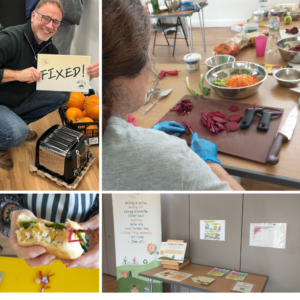
Growing Food Together
- To promote the benefits of sustainable, localised food production.
- To promote the benefits of reduced food waste.
- To encourage and enable local residents to: grow their own food at home and in community spaces; reduce food waste; share surplus food in the community and with local charity groups.
- To promote wildlife conservation and restoration projects and encourage local residents to participate in these projects.
- To connect ongoing initiatives and bring the community together through activities related to the above aims (e.g. growing and preserving food, building infrastructure, competitions, providing food for local events, wildlife events).
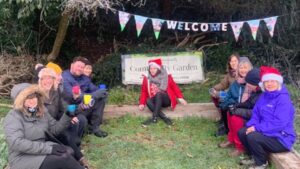
Climate Emergency Centres
A growing network of these hubs are doing great work across the UK. The network provide a fabulous handbook containing everything you need to set one up in your local area – check out their website.
“THE ESTABLISHMENT OF EMPTY BUILDINGS AS INSPIRATIONAL COMMUNITY HUBS FOR THE BENEFIT OF PEOPLE AND PLANET.”

What makes a CEC?
1 It has a solutions focus- for people and planet
2 It is local and inclusive- focused on meeting community needs
3 It is an active part of a wider network- for mutual support and cooperation
The project self-funds by using a business model that enables owners of currently vacant business premises to reduce their Business Rates payments by up to 100% through ‘meanwhile leasing’ the property for community benefit to a not for profit / charitable organisation (the CEC). This means the project can acquire a vacant property to use to generate income through activities that meet local community needs in a sustainable way.
In addition, the property owner can build good relationships with the local community and the local Council through supporting a creative and positive sustainability initiative.
Undaunted: Living Fiercely into Climate Meltdown
Conversation with Carolyn Baker and Michael Shaw Summer 2022
So much wisdom here from Climate Psychologist Carolyn Baker – highly recommended
Finding Solid Ground in an Age of Threat
Conversation with Meg Wheatley and Michael Shaw Summer 2022
Highly recommended
A whole range of useful resources on Mutual Aid, Community Resiliency and Disaster Collectivism
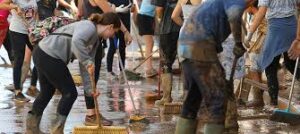
Helpful Blogs
Blogs from Professor Jem Bendell about Emotional and Psychological Implications:
- Emotional support in face of climate tragedy
- After acceptance – some responses to anticipating collapse
- Fourteen Recommendations on Living Beyond Collapse-Denial
- Hope in a time of climate chaos – a speech to psychotherapists
- Forgiving the destructive tendency in everyone as climate chaos grows
- How Everything Can Collapse – my foreword to new book
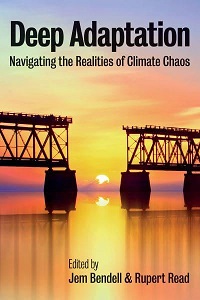
Active Hope Online Course
This is a free video-based seven-week online course that takes you on a journey through seven areas that can nourish our ability to make a difference in the world. While we suggest a week for each module, you can do it at your own pace and take longer if you prefer.
Facilitated by Chris Johnstone, who has worked with Joanna Macy for decades, and was the co-author of the book “Active Hope”.
Joining the course is a simple two step process. First please sign up to this online learning platform using the sign up link at the top. Then click on ‘enrol now’ button on the course information page at https://activehope.training/p/active-hope-foundations-training
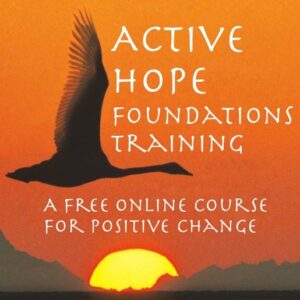
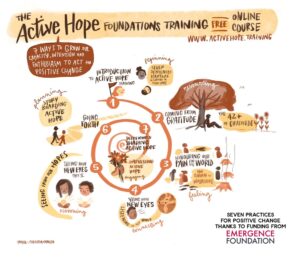
PostDoom
A fabulous resource for all who are awake to the predicaments we face. Michael Dowd offers nourishment in the form of resources, and 75+ recorded conversations with leading activists, scientists, spiritual leaders and thinkers. As many of us have discovered, ‘Post-Doom’ is a very different place than ‘doom’! It’s about what opens up when we remember who we are, accept the inevitable, honour our grief, and prioritize what is pro-future and soul-nourishing. It’s a fierce and fearless reverence for life and relative equanimity even in the midst of abrupt climate change, a global pandemic, and collapse of both the health of the biosphere and business as usual. It’s about living meaningfully, compassionately, and courageously no matter what.
Courage and acceptance in troubled times | Catherine Ingram | TEDxByronBay
In this poignant talk, Catherine Ingram draws on her 40 years of experience as a dharma teacher and ex-journalist to give us her practical suggestions to help us cope with a world of intersecting crises. Catherine Ingram is an internationally renowned dharma teacher and former journalist specialising in empathic activism. She has led silent retreats and public seminars since 1992. Her long-form essay “Facing Extinction,” which has been downloaded over a million times, addresses some of our most pressing existential threats while enjoining us to find courage and understanding in facing them.

